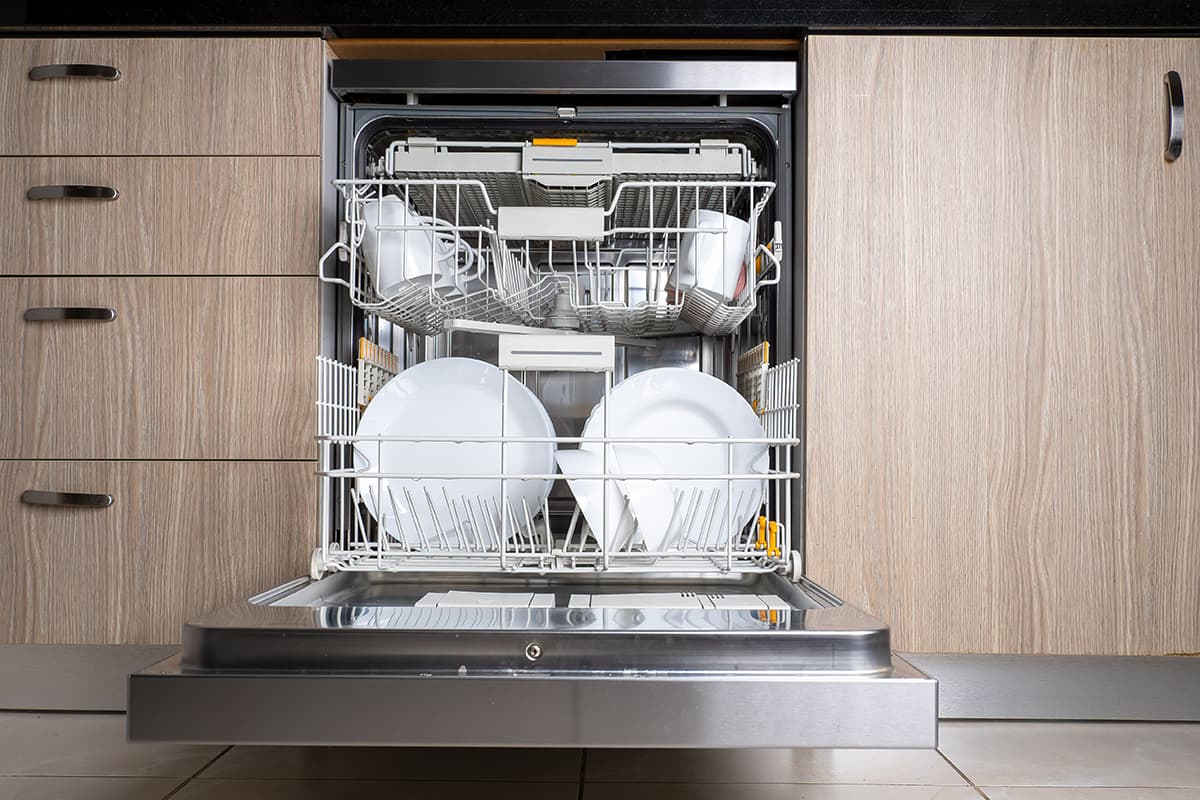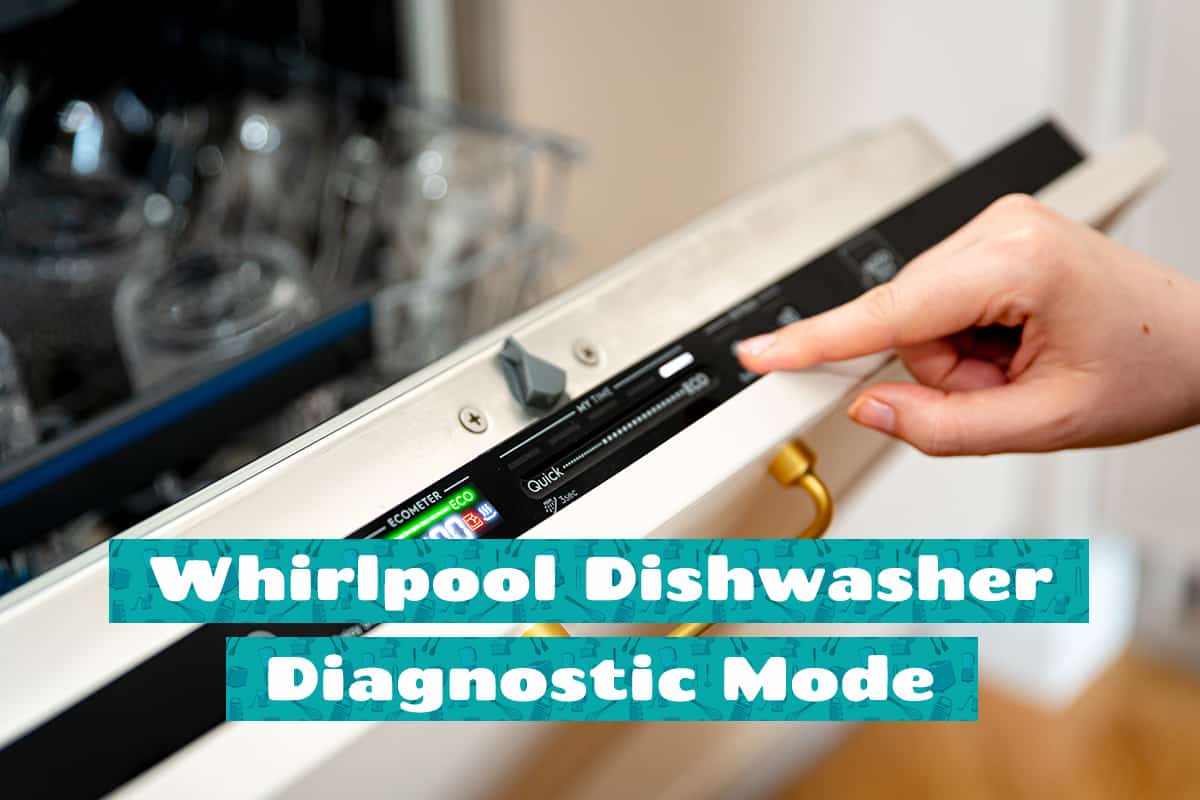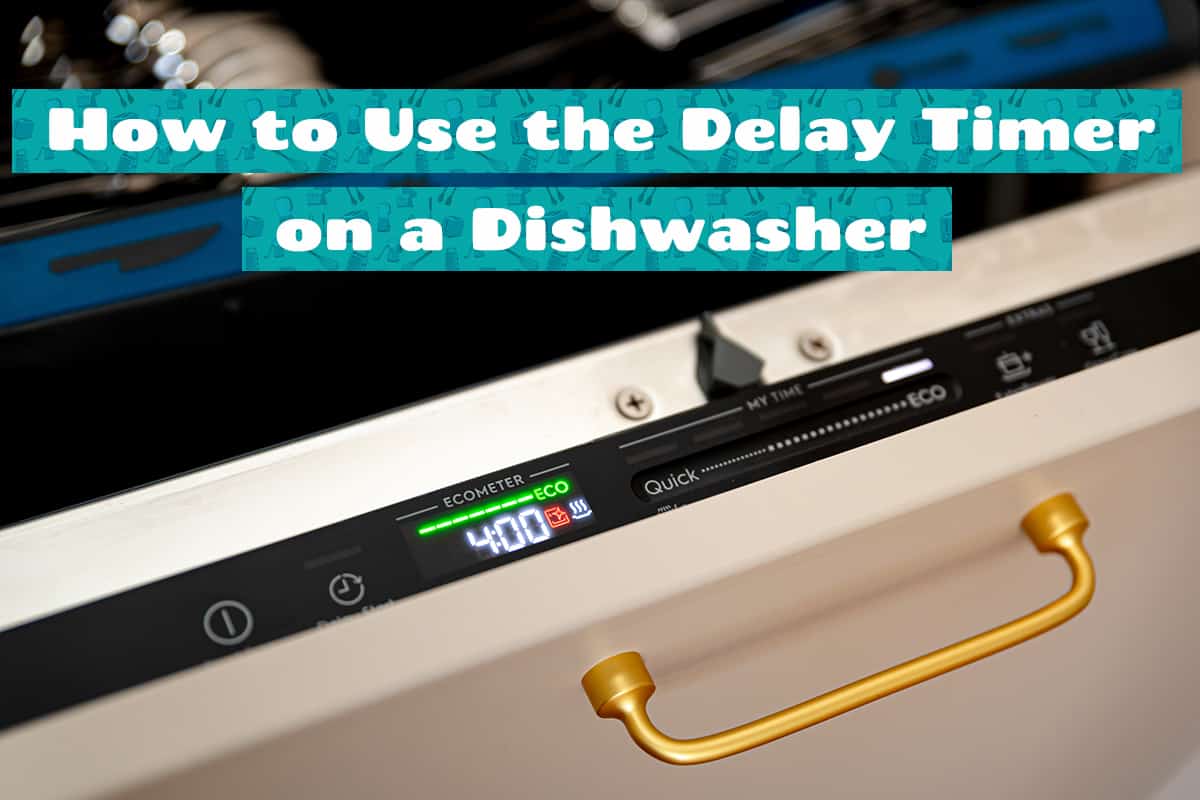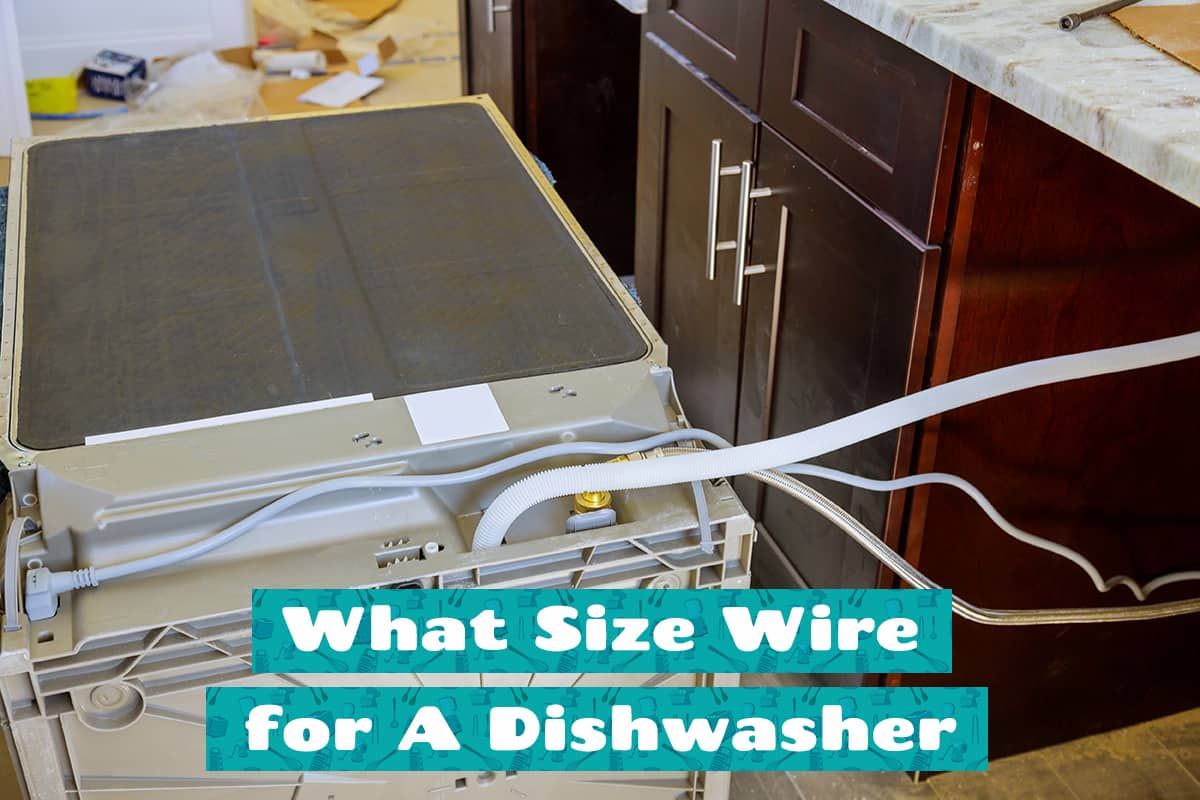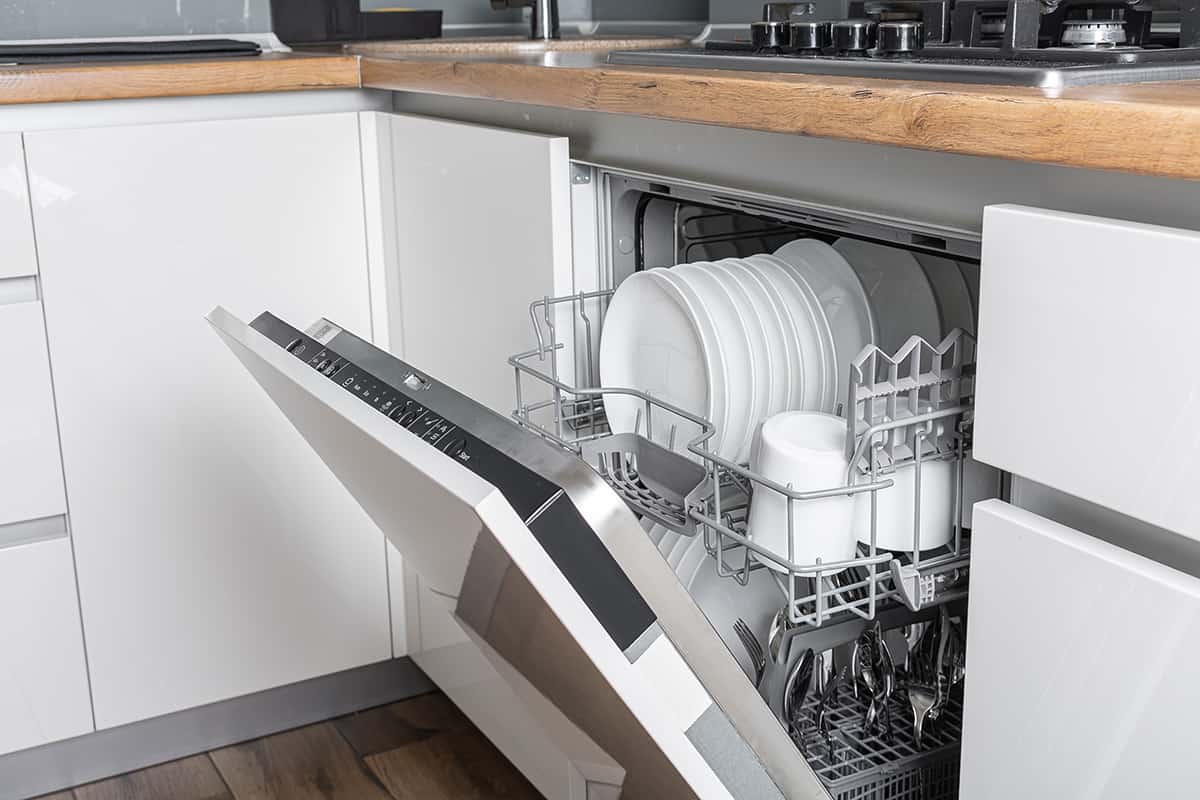The only real way to sanitize your dishes in a dishwasher is to spray hot water throughout the tub. Without it, the machine wouldn’t produce a satisfying amount of steam that gently heats up your face when you open the dishwasher’s door. However, when it comes to Bosch dishwashers, do you need to connect them to your hot water line?
Bosch dishwashers do not require a continuous flow of hot water to operate. The dishwasher comes with its own heating element, which it uses to raise the temperature to 135-155°F.
So, if you decide to pick up a Bosh dishwasher, you can rest assured that the machine will do all of the heavy lifting for you. That said, there’s still more we need to explore about Bosch dishwashers, such as how the machine works and whether or not you need to adjust the temperature settings. I’ll also go into detail regarding the energy efficiency of Bosch dishwashers.
Does the Bosch Dishwasher Need Hot Water?
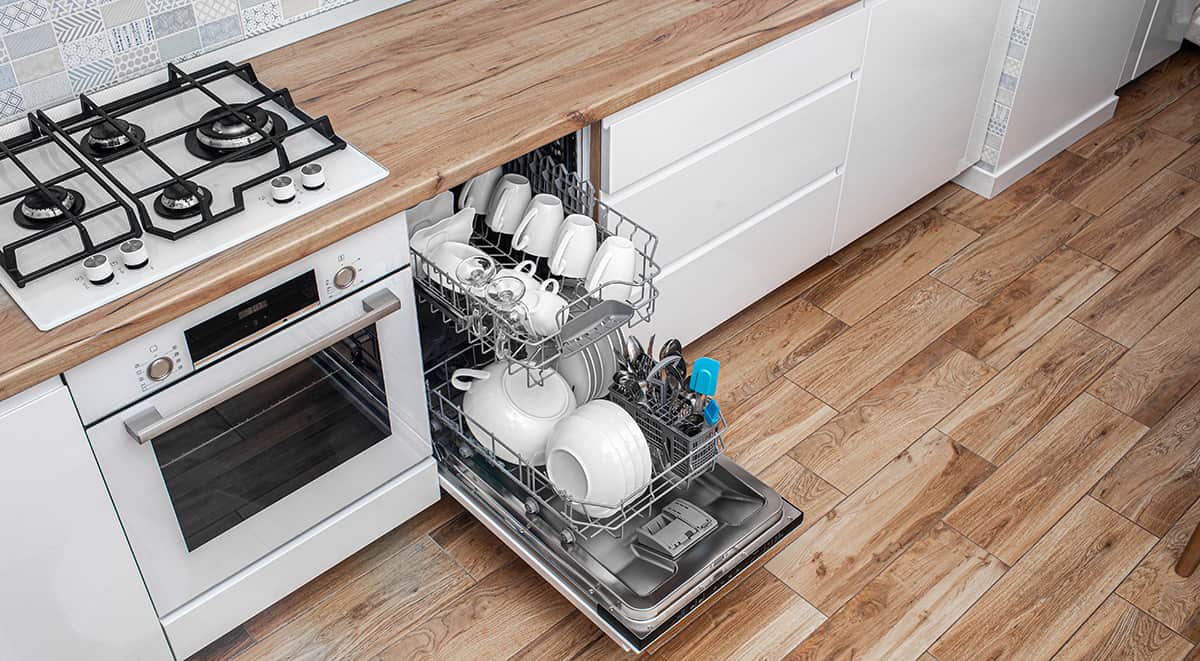
The great thing about modern-day dishwashers is that they do all of the thinking for you. When it comes to how much water the machine needs to wash and rinse your plates, how long it needs to spray water, and at what temperature, you can pretty much rely on your Bosch dishwasher to have everything set at a push of a button.
That said, some folks, especially those who are inexperienced in using dishwashers, may ask themselves: does a Bosch dishwasher need hot water?
The short and sweet answer to this is, no, Bosch dishwashers do not need hot water to run.
Bosch dishwashers, like most dishwashers available on the market, have a pre-installed heating element. This component raises the temperature of the water to up to 155°F before spraying it on the surface of every plate, pot and pan, and piece of cutlery inside the dishwasher’s tub.
To put it simply, your Bosch dishwasher is a plug-and-play device. Simply plug it into a wall outlet, input which cycle you want to run, and the dishwasher will handle the rest, including preparing heated water to sanitize your dishes thoroughly.
How Does a Bosch Dishwasher Work?
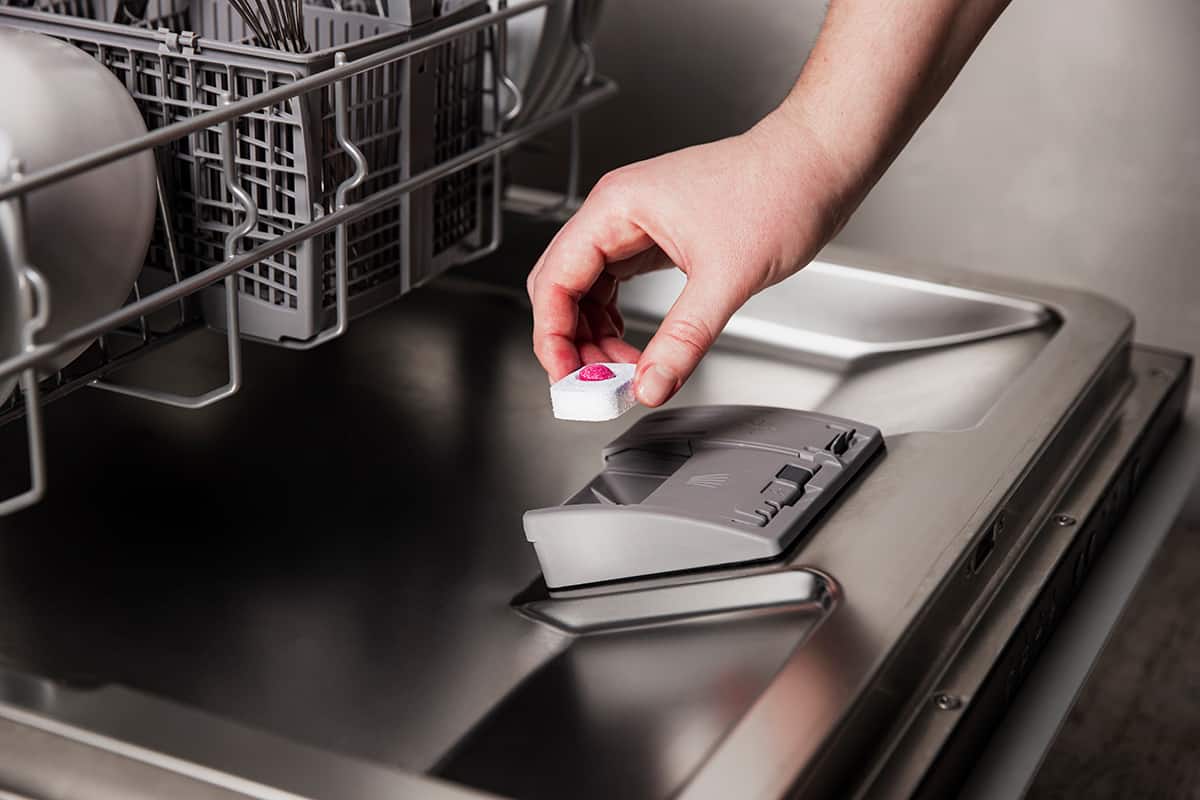
Bosch dishwashers are considered to be top-of-the-line dishwashing units. They come with an array of sensors that automatically weigh the number of dishes in the tub before carefully measuring how much water it needs to perform a full wash cycle.
This is what makes Bosch dishwashers so great—you don’t have to manually input all sorts of wash modes. You pretty much just have to load the dishracks with dirty plates, press a few buttons, and wait until the dishwasher comes to a full stop before unloading the tub.
Another feature you won’t find in competing models is a detergent sensor. This will inform the user of whether or not there is enough detergent in the detergent dispenser. If there isn’t, the control panel will show an error code, which means you need to top off the dispenser before the machine can get to work.
How Much Hot Water Does a Bosch Dishwasher Use?
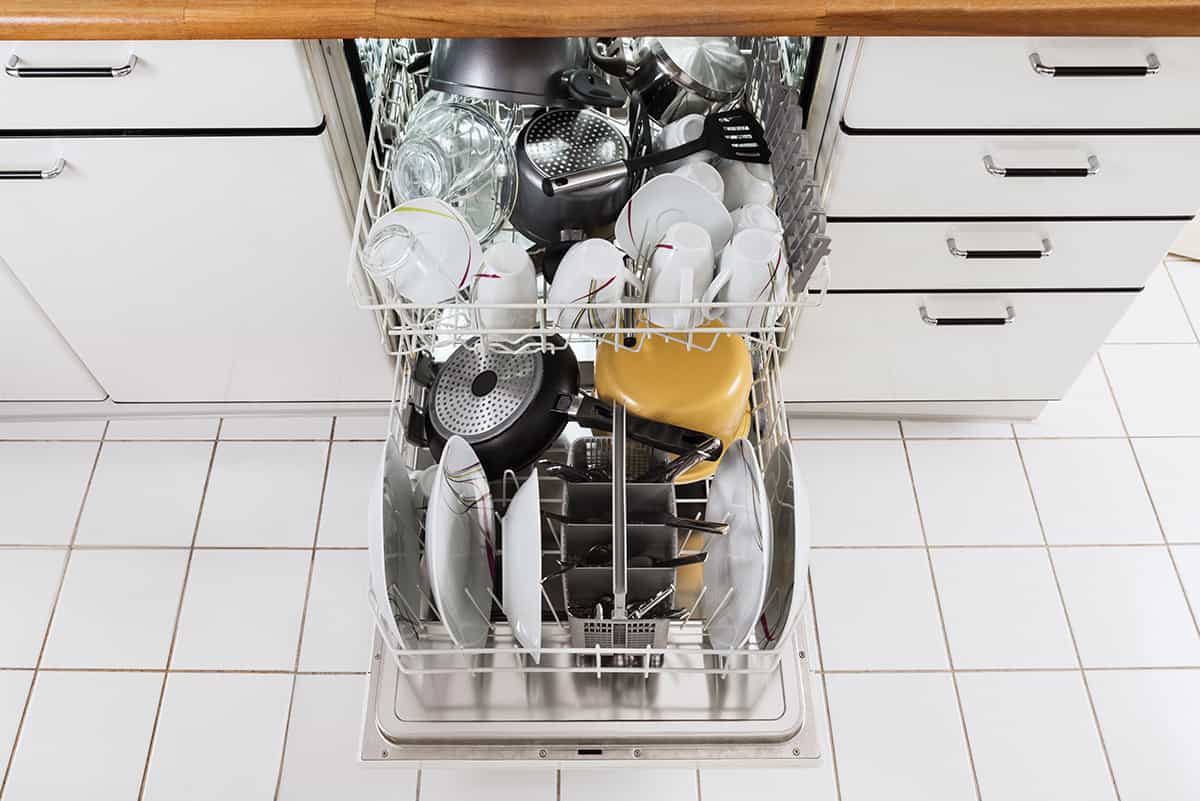
The exact quantity of water used by a Bosch dishwasher will vary from model to model, as well as from cycle to cycle. For instance, modern Bosch dishwashers sporting an Energy Star label will use as little as 2.51 gallons of water from start to finish. To put this figure into perspective, it can take anywhere from 10 to 25 gallons of water to do what a Bosch dishwasher can do by hand.
Now, when it comes to how much hot water the machine uses, a regular cycle will heat up half the total gallon count of water usage. That means roughly 1.75 gallons of water will be brought up to temperature by the internal heating element.
Since dishwashers are mainly connected to a cold water line, it can take several minutes for the Bosch dishwasher to fully heat a tub of water. If your dishwasher generates a slight droning sound without spraying water, that’s the sound of the heating element at work.
Do I Need to Adjust a Bosch Dishwasher’s Temperature Settings?
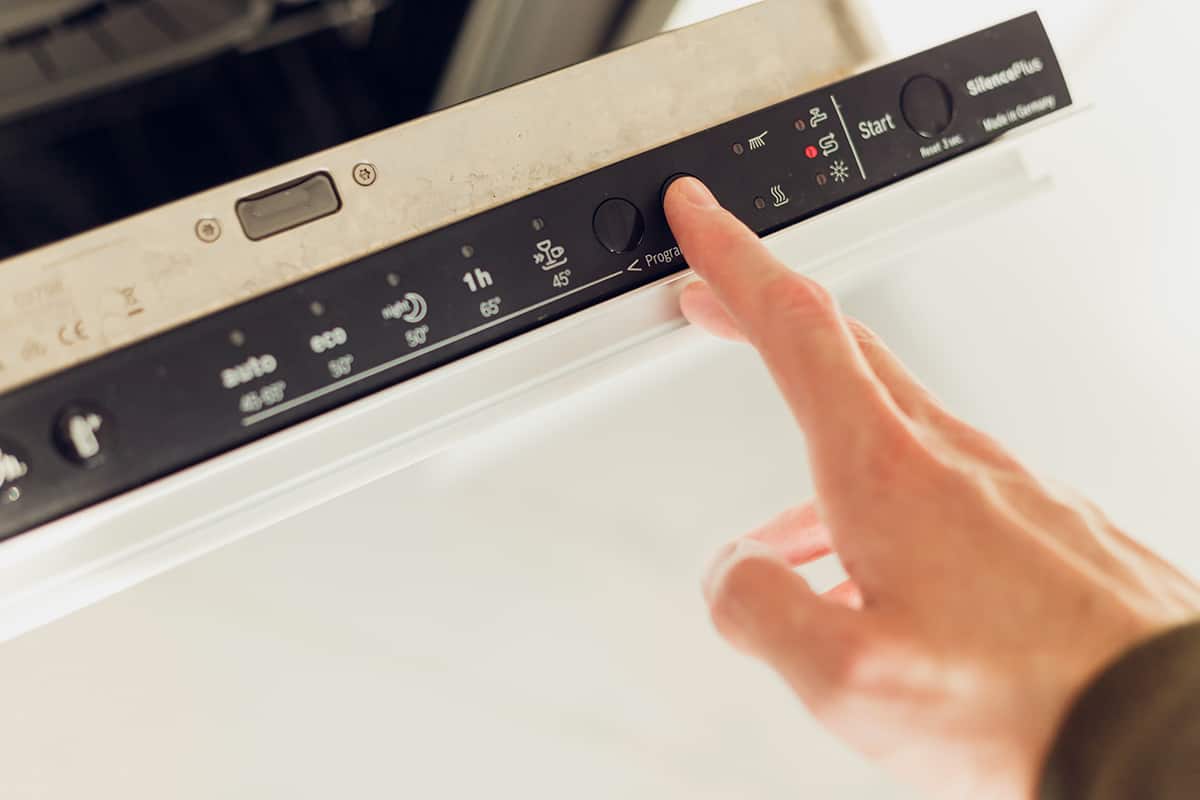
Earlier, I mentioned that a Bosch dishwasher will automatically heat the water to 135-155°F. So, does that mean you have control over how hot (or cold) the dishwasher will heat water? No, it doesn’t.
As previously stated, a Bosch dishwasher will do all the thinking for you. That also includes raising the temperature of the water up to 155°F. The exact water temperature used will depend on the cycle. For instance, regular wash cycles will generally heat water up to 135°F, whereas running Sanitizing Mode will super-heat the water to 155°F to blast away and destroy surface bacteria.
When you adjust your Bosch dishwasher’s settings via the reboot method, the only real thing you can regulate is the salt setting. Bosch dishwashers come out of the factory with a H:00 setting, which means no salt.
How Do a Bosch Dishwashers Dry Dishes?
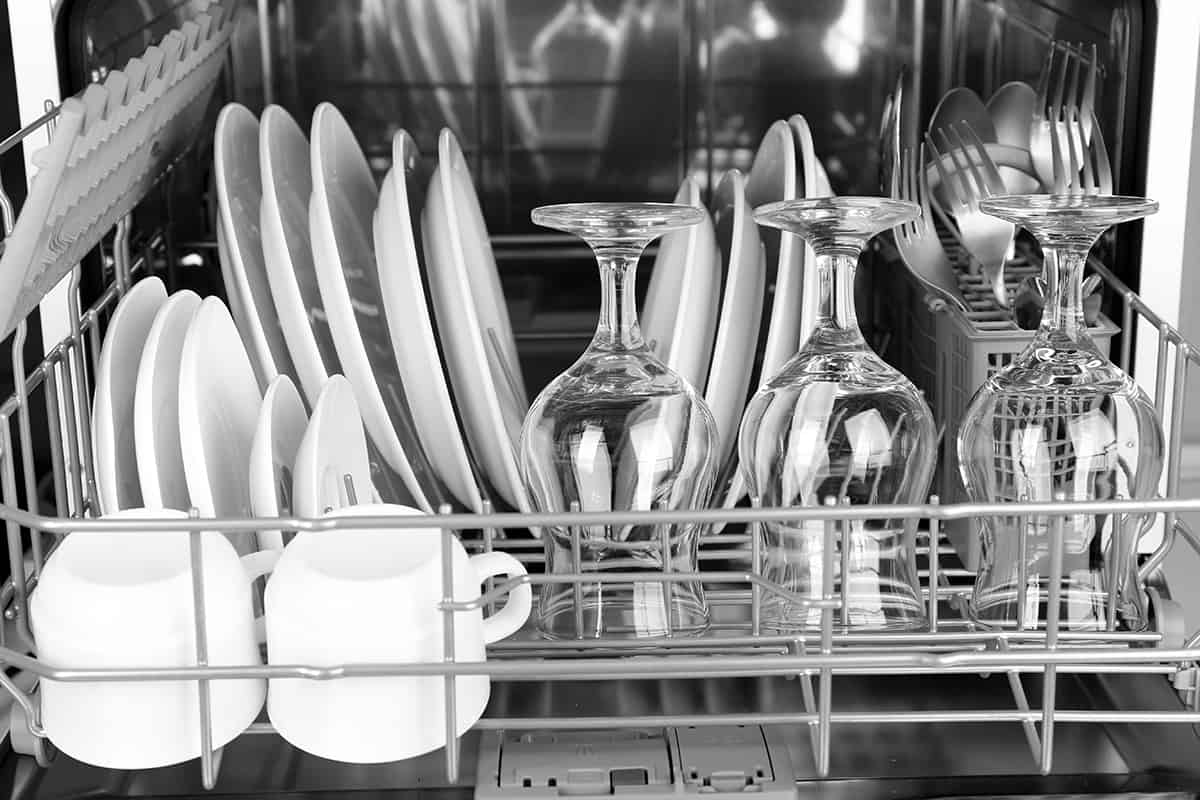
There is one common misunderstanding of how dishwashers, including those made by Bosch, dry dishes. In the past, dishwashers used a heat-drying process, which employed impeller fans to blow heated air into the tub, forcing steam out the exhaust vents. This classical method has been phased out of modern dishwashers due to their high energy consumption levels.
Today, Bosch dishwashers rely on a method called condensation drying. This involves spraying heated water near the end of the wash cycle, which turns into condensation that clings onto the cooler stainless-steel tub rather than your dishes.
Are Bosch Dishwashers Energy-Efficient?
Yes, they are. According to the Bosch website, Bosch is an industry leader in quiet and energy-efficient dishwashers. The company was also dubbed the 2022 Energy Star Partner of the Year—an award that is given to manufacturers that fight the good fight against excessive resource consumption.
What this means is that Bosch dishwashers use less water and power to operate than its non-Energy-Star-certified competitors. So, you can rest assured that even though a Bosch dishwasher needs to heat water to a sanitizing degree, you won’t end up paying an arm and a leg on energy costs.
Can I Connect My Bosch Dishwasher to a Hot Water Line?
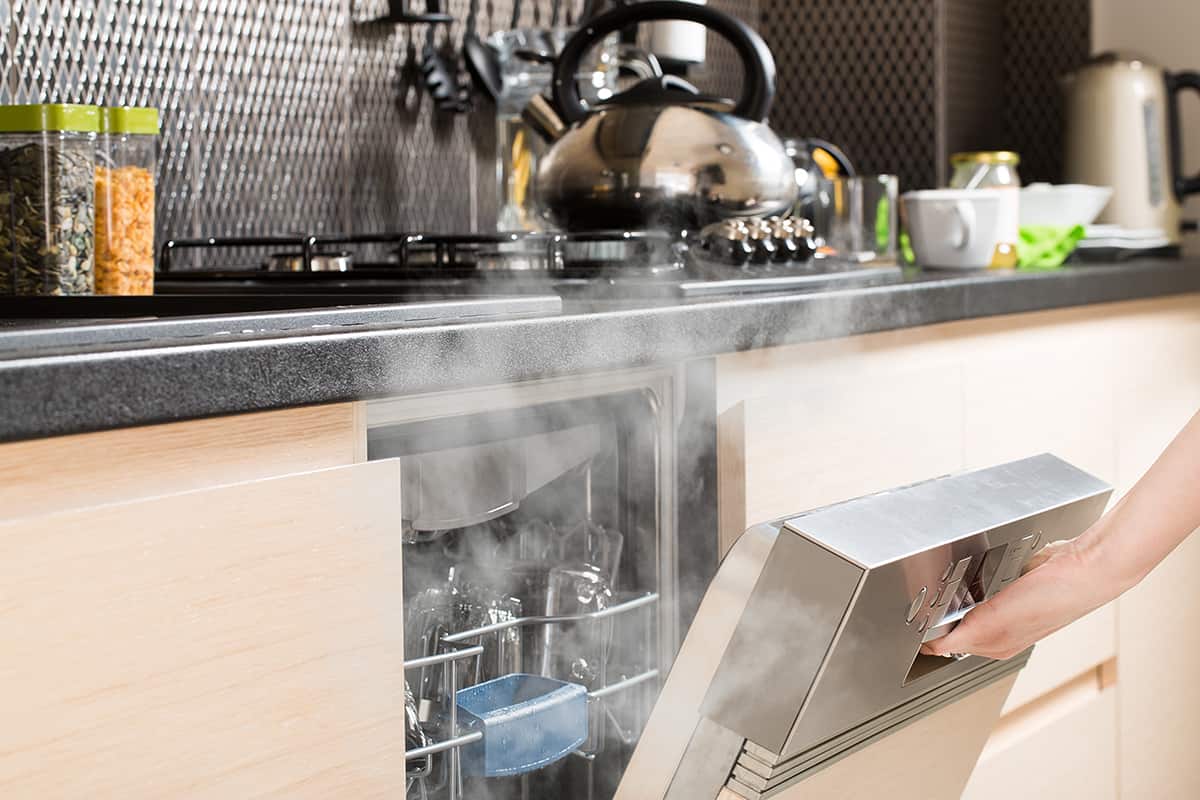
In brief, yes, you can. In fact, if you wish to push the Bosch dishwasher’s energy efficiency to the next level, you might want to consider hooking it up to your home’s hot water supply.
On average, the hot water line will provide water at a consistent 120°F—a vast difference from the 45-55°F water in the cold water supply. So, the dishwasher only has to raise the temperature of the pre-heated water by 15-35°F to get the full sanitizing effect.
From a mathematical standpoint, this might seem like the logical thing to do. However, it’s not that simple.
For instance, your water heater might need to work harder in order to keep up with the necessary flow of heated water. This is especially true if you run your dishwasher more than five times per week. Basically, this translates into higher water-heating costs, which could’ve been avoided by connecting your dishwasher to the cold water line.
In addition, many dishwashers, including many of Bosch’s models, are incompatible with your home’s hot water line. The heated water can cause damage to the machine’s inlet line and heating element, which could mean more maintenance issues over the long run.
So, before deciding whether to connect your Bosch dishwasher to your home’s hot water line, consult the paperwork to see if the dishwasher is compatible or not. The last thing you want is to inadvertently destroy your dishwasher from the inside.
Check out more Bosch dishwasher articles here.
